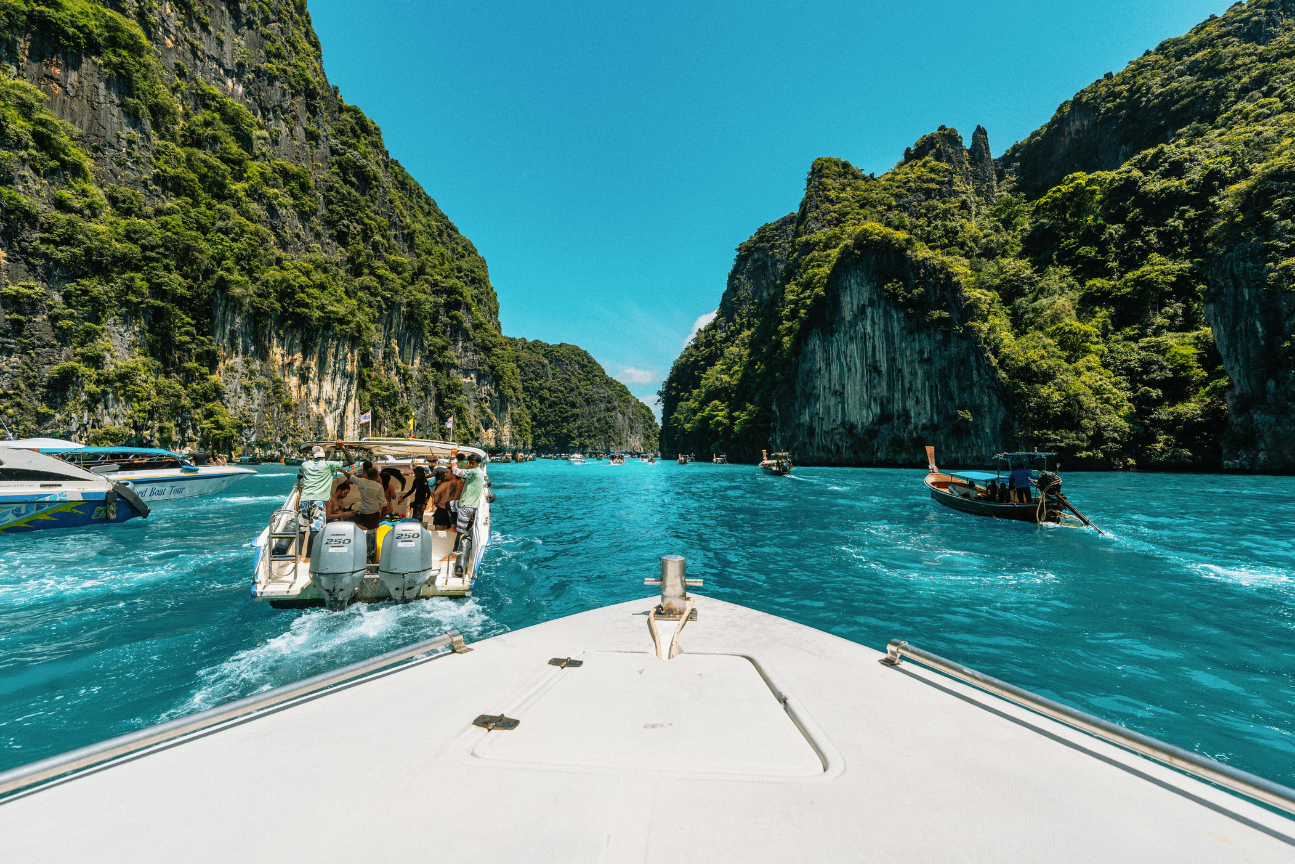Every day, travel agencies are losing bookings they never knew they could have had. Why?
Because someone else’s blog, video, or email list is sending those customers somewhere else through affiliate marketing.
By turning influencers, content creators, and comparison sites into your salesforce, you can tap into new audiences, generate bookings around the clock, and only pay when it works. It’s a performance-based model that doesn’t drain your budget—it builds your bottom line.
In this guide, you’ll learn exactly how to build, launch, and scale an affiliate program that drives results, reduces acquisition costs, and grows your brand with minimal effort and maximum return.
Key Components of an Effective Affiliate Program for Travel Agencies
The best affiliate programs don’t just attract partners, they keep them engaged and delivering results. Here’s what your program needs:
Competitive Commission Structure
Affiliates need to see real earning potential. Whether it’s a flat fee per booking or a revenue share, your structure should reward effort and results. Consider offering commission per sale or lead, and reward top performers with bonuses or recurring payouts.
Robust Affiliate Tracking System
Trust hinges on accurate tracking. A good system requires accurate performance tracking with cookies, dashboards, and real-time attribution. This ensures partners are properly credited and motivated to keep promoting.
High-Quality Marketing Materials
Affiliates are more likely to promote your offerings when it’s easy. Supply them with pre-approved banners, swipe copy, email templates, and call-to-action buttons. Bonus: Make sure those materials rely on high-converting landing pages.
Dedicated Affiliate Manager
Even your top affiliates will have questions. A support rep or dedicated manager can optimize creative assets, track goals, and provide feedback. This personal touch makes your program more effective and more human.
Clear Terms and Conditions
Set clear expectations early. Include guidelines for payouts, prohibited practices (like bidding on branded keywords), and acceptable use of your assets. It protects your brand and streamlines disputes.
How to Implement an Affiliate Program for a Travel Agency
Launching an affiliate program begins with a solid foundation. From setting goals to choosing a platform and recruiting partners, each step plays a key role in your success.
In this section, you’ll learn how to build and launch a travel-focused affiliate program that drives bookings and grows your reach, without adding complexity to your day-to-day.
Step 1. Define Program Goals
Are you looking to increase bookings in a specific destination? Expand into a new demographic?
Set clear goals tied to revenue, traffic, or geography. Align these with broader KPIs like retention or cancellation rates.
Step 2. Choose an Affiliate Platform/Network
If you're starting small, consider white-label or in-house platforms. Larger agencies may want to explore networks like CJ or Travelpayouts. Whatever you choose, ensure it can be automated with software and includes robust reporting tools.
Step 3. Recruit and Onboard Affiliates
Start by targeting niche travel blogs and influencers who align with your brand. Provide them with a welcome kit that includes a copy, image assets, and onboarding videos. Pro tip: Connect influencers with travel brands using tracked links to personalize promotions.
Step 4. Launch and Monitor
Your first month is all about testing and tweaking. Monitor behavior, track what creatives perform best, and experiment with tiers or bonuses. And don’t forget to review which affiliates are driven by referral traffic and which ones convert cold audiences more effectively.
Strategies to Maximize Bookings Through Affiliates
Affiliate marketing enables travel agencies to grow faster, with lower costs and a wider reach. The strategies outlined below show you how to transform your affiliate program into a consistent stream of bookings and achieve sustained long-term growth.
Offer Exclusive Deals/Promotions
Affiliates love having something special to share. Offer them time-sensitive discounts, early-bird rates, or bundle offers. Use personalized landing pages that amplify last-minute booking deals and make conversions easy.
Content-Rich Partnerships
Partner with content creators who produce guides, listicles, or video reviews. Help them enrich content with testimonials or destination itineraries. This kind of deep content enhances SEO through content syndication and keeps working for you long after it’s published.
Check out how online bookings can benefit from high-quality landing pages and content in our booking software overview.
SEO-Focused Collaborations
Work with affiliates who rank for high-intent travel keywords. These pages target niche audiences and consistently deliver bookings without requiring constant budget increases.
Performance Incentives
Motivate affiliates with monthly contests, exclusive tiers, or seasonal prizes. This approach works best during holidays, spring break, or other peak times, as affiliate marketing often benefits from seasonal campaigns.
Cross-Promotion
Run co-branded newsletters, blog features, or social media shoutouts. Promote top-performing affiliates inside your agency’s email campaigns. It strengthens brand trust via influencers and shows you're invested in their success too.
Mobile Optimization
Mobile is now the main booking channel. Having affiliate landing pages and checkout flows that are fully responsive increases the chances of repeat bookings for tour activities. A bad mobile experience = lost sale.
Benefits of Affiliate Marketing for Travel Agencies
Affiliate marketing is one of the most efficient ways for travel agencies to scale. It lowers customer acquisition costs while expanding your reach through trusted voices, targeted content, and untapped audiences.
- Increase agency visibility online by distributing your offer across influencers, review sites, and niche blogs.
- Cost-Effective Customer Acquisition: You only pay when someone actually books or leads—no wasted spend.
- Scalability: More affiliates = more reach. It’s like having an unlimited sales team.
- Enhanced Credibility and Trust: Influencers already have built-in audiences who believe them.
- Diversified Marketing Channels: Affiliate marketing expands your reach across search, social, email, and content, reducing reliance on any one channel.
- Access to Niche Markets: Affiliates generate passive income for partners that gives them an incentive to stick around and grow with you.
Legal Considerations and Compliance in Affiliate Marketing
Affiliate marketing can boost growth, but without the right safeguards, it can also expose your brand to legal and reputational risks. To stay compliant and protect your credibility, it’s crucial to follow regulations and set clear rules for your partners.
Understanding the Law
Follow disclosure rules under the FTC, Canadian Competition Bureau, and other authorities. It’s mandatory that any affiliate-promoted content clearly states the commercial relationship.
Transparency in Disclosures
Make sure all links and content include “sponsored” or “affiliate link” labels. This builds trust and helps you avoid legal trouble.
Protecting Your Brand
Use affiliate tracking and monitoring tools to prevent unauthorized use of your brand or promotions. Set clear rules against coupon abuse, false claims, or spammy content.
Key Takeaways
- Affiliate marketing helps travel agencies grow efficiently by lowering acquisition costs and expanding reach through influencers, bloggers, and niche partners.
- A well-structured program, with strong tracking, clear commissions, and quality creatives, drives real bookings and supports long-term scalability.
- Ongoing success depends on smart strategies, legal compliance, and strong partner relationships that build trust and keep affiliates motivated.
Frequently Asked Questions
What Types of Affiliate Programs Work Best for Travel Agencies?
In-house programs offer more control and flexibility. Networks offer built-in affiliates and tools, but they charge higher fees. Smaller agencies often start in-house, then scale to networks.
What is the Difference between Referral and Affiliate Marketing in Travel?
Referral programs reward customers for sharing. Affiliate marketing is professional and aligns with performance-based marketing—you pay partners for real bookings or leads.
How Does Affiliate Marketing Compare to Influencer Marketing for Travel?
Affiliate marketing is long-term and focused on conversions. Influencer campaigns help build awareness, but they aren’t always trackable. Together, they work best.
Are There Any Common Challenges in Using Affiliate Marketing for Travel Agencies?
Yes—tracking issues, inactive affiliates, or low conversion rates are common. Combat this by vetting partners well, testing creatives, and refining your commission strategy.












